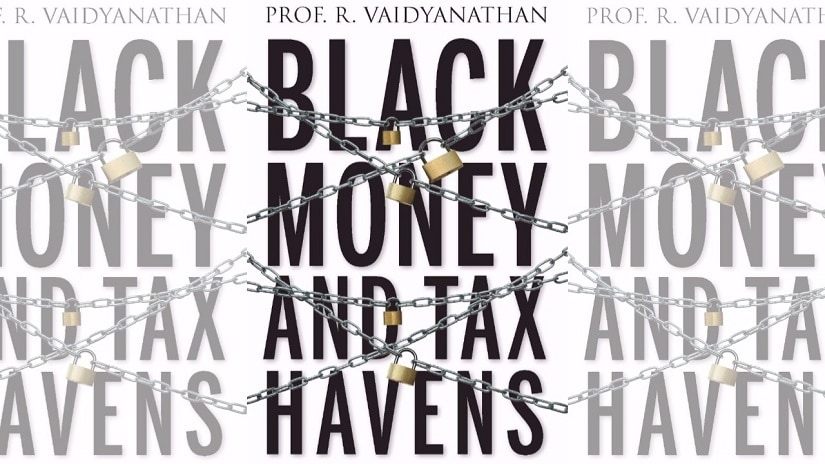Editor’s note: Black money is a topic that has elicited much debate in recent times. In his new book — Black Money and Tax Havens — Prof R Vaidyanathan provides an overview of black money — its generation, estimates and how and why it is spirited away to tax havens. The following is an excerpt from the chapter titled ‘Blood Money’. Reproduced here with permission from Westland Books. Terrorism and Offshore Financing The life-blood of an effective terrorist network is financing and shell companies facilitate the easy distribution of money. The Islamic State, popularly referred to as ISIS makes $1 million to $2 million a day in oil production, it has obtained over $100 million in ransoms from kidnapping and collects ‘taxes’ from the 6 million people it has gained control over. Al-Qaeda’s worldwide operations require $30-50 million per year. The September 11 attacks, for example, cost approximately $500,000. But not every terrorist attack requires large sums of money. The London transit bombings cost a mere $15,000 and the Paris bombings cost about $10,000 or less. Regardless of the size of the operation, funding a terrorism enterprise is easily done under the cover of shell companies. In contrast, the United States has spent (as of 2014) over $1.6 trillion since September 11, 2001 on its major military operations abroad and $9 million a day just on fighting ISIS. [caption id=“attachment_4099895” align=“alignnone” width=“825”]  Cover of Prof R Vaidyanathan’s Black Money and Tax Havens, published by Westland[/caption] If we want to fight terrorism effectively, we should also be cracking down on terrorism financing. Given the ease and persistence of terrorist financing — particularly using shell companies — a shift in attention on financial regulations that would stop terrorism financing would be a good start. Also the Panama Papers incident shows how easy it is to finance terror using US shell companies. With the ease of incorporation, some may decide to create companies to hide assets in for tax evasion or money laundering purposes. However, even more alarming is that terrorists can easily disguise their true identities from law enforcement through shell companies. A potential terrorist cannot take a flight to neighbouring states without a passport or driver’s licence, but they can form a shell company without any information in a matter of minutes. In a high-profile instance of this, for many years, Russian arms dealer Viktor Bout used shell corporations to anonymously supply terrorist groups around the globe with major weaponry like tanks and shoulder-file missiles. Laws against money laundering and terror financing are used around the world. In the United States, the Patriot Act was passed after the September 11 attacks, giving the government anti-money laundering powers to monitor financial institutions. The Patriot Act has generated a great deal of controversy in the United States since its enactment. The United States has also collaborated with the United Nations and other countries to create the Terrorist Finance Tracking Program. RAND Corporation has brought out a large body of literature and analysis on terror financing and its implications. Terrorism Financing in India In January 2015, the inaugural US-India Anti-Money Laundering/ Counterterrorism Finance (AML/CFT) dialogue was held. India is a member of the Financial Action Task Force (FATF) and two FATF-style regional bodies, the Eurasian Group on Combating Money Laundering and Financing of Terrorism and the Asia-Pacific Group on Money Laundering. India’s Financial Intelligence Unit (FIU-IND) is also a member of the Egmont Group (an informal international gathering of financial intelligence units formed in 1995). Indian officials monitor and regulate money transfers, require the collection of data for wire transfers, oblige non-profit organizations to file suspicious transaction reports, and regulate and monitor these entities to prevent misuse and terrorism financing. Although the Government of India has aligned its domestic AML/ CFT laws with international standards by enacting amendments to the Prevention of Money Laundering Act (PMLA) in November 2012, the government has yet to implement the legislation effectively, especially with regard to criminal convictions. Law enforcement agencies typically open criminal investigations reactively and seldom initiate proactive analysis and long-term investigations. While the Indian government has taken action against certain hawala financing activities, prosecutions have generally focused on non-financial businesses that conduct hawala transactions as a secondary activity. Additionally, the government has not taken adequate steps to ensure that all relevant industries are complying with AML/CFT regulations though the reporting of Suspicious Transaction Reports (STRs) relating specifically to terrorism financing has increased significantly. From July 2014 to April 2015, the FIU-IND received 76,149 STRs and disseminated 52,485 STRs to various intelligence and law enforcement authorities. The degree of training and expertise in financial investigations involving transnational crime or terrorism-affiliated groups varies widely among the federal, state and local levels and depends on the financial resources and individual policies of various jurisdictions. More than 300 personnel from various zonal and sub-zonal offices of India’s Enforcement Directorate have participated in training programmes on financial investigation, money laundering, foreign exchange contraventions, effective prosecutions, and cyber crimes as part of an effort to build capacity. US investigators have had limited success in coordinating the seizure of illicit proceeds with their Indian counterparts. While intelligence and investigative information supplied by US law enforcement authorities has led to numerous seizures of terrorism-related funds, a lack of follow-through on investigational leads has prevented a more comprehensive approach. The Government of India has also taken steps to increase financial inclusion through expanding access to the banking sector and issuing biometric-enabled universal identification numbers. Any expert on Indian stock markets knows that our markets are increasingly being moved by global flows — both inflows and outflows of funds. Secondly, such flows may be the ill-gotten wealth of Indians kept abroad in tax havens, or domestic funds sent out and brought back to facilitate some activities. This has to be seen in the context of concerns expressed by our then National Security Advisor MK Narayanan regarding the possibility of terror funds coming in through financial markets a few years ago. India has also taken steps to implement United Nations Security Council Resolution (UNSCR 2178) related to foreign terrorist fighters and to advance efforts on Politically Exposed Persons (PEP). It recalls its decision in resolution 1373 (2001) that Member States shall afford one another the greatest measure of assistance in connection with criminal investigations or proceedings relating to the financing or support of terrorist acts.
Black money is a topic that has elicited much debate in recent times. In his new book — Black Money and Tax Havens — Prof R Vaidynathan provides an overview of black money — its generation, estimates and how and why it is spirited away to tax havens
Advertisement
End of Article


)

)
)
)
)
)
)
)
)



